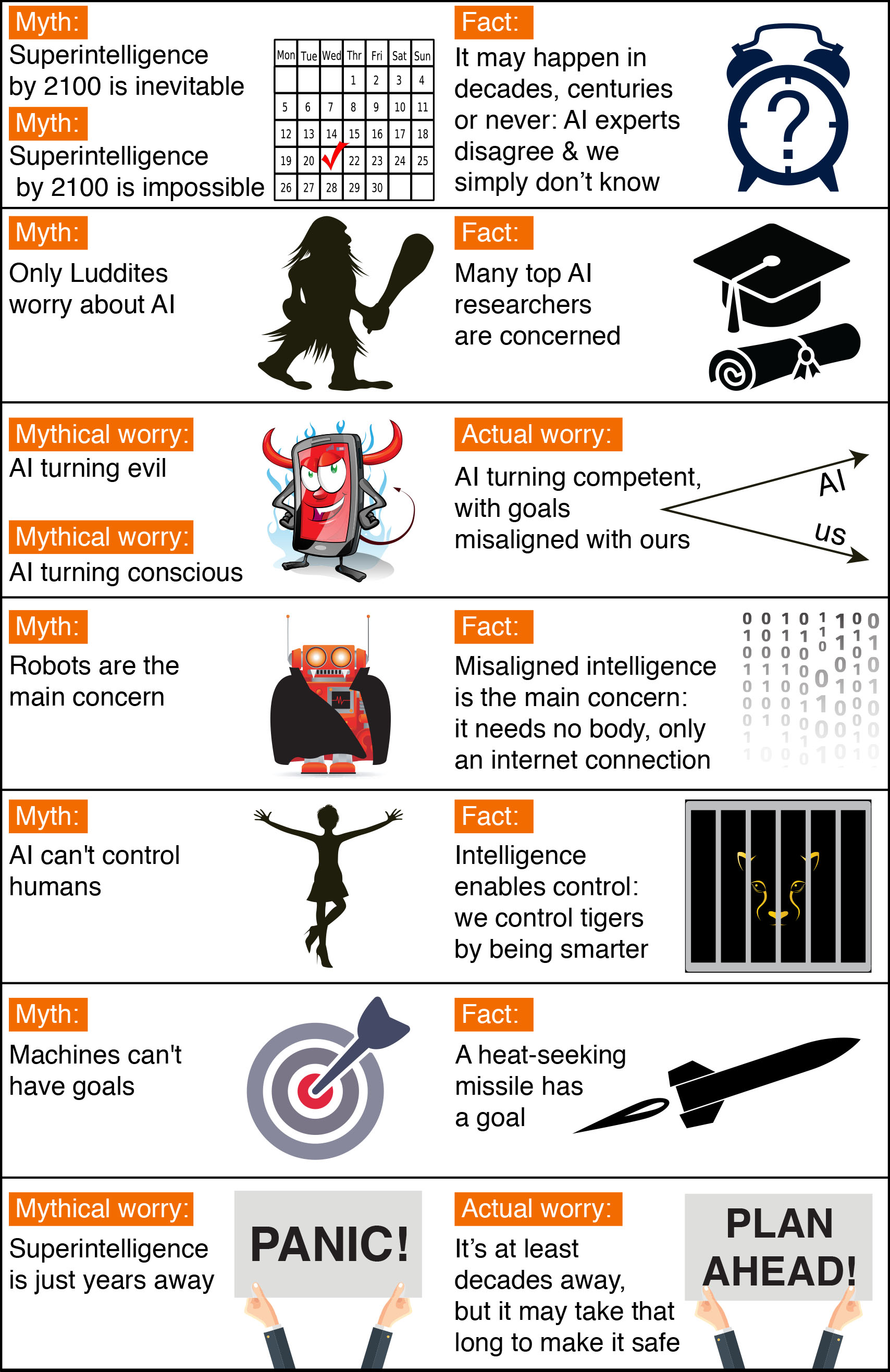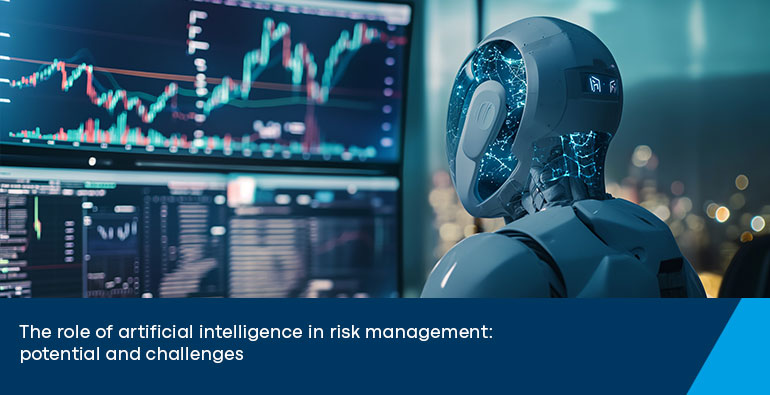Artificial Intelligence (AI) offers incredible possibilities. Yet, it also brings risks.
Understanding these risks is crucial in a world increasingly powered by AI technology. From privacy concerns to ethical dilemmas, the implications of AI are vast. As AI systems become more autonomous, their decision-making can lead to unintended consequences. There's a growing need for balance between innovation and caution.
Businesses and individuals must stay informed about potential pitfalls. This awareness helps navigate the complex landscape AI creates. Whether you're a tech enthusiast or a wary observer, exploring AI risks is vital. It ensures responsible use and development. Let's delve into the challenges AI presents. Discover why they matter in our digital age.
Ai In Modern Society
AI helps in many tasks every day. Smart devices play music. They answer questions. Many homes have AI helpers. People use AI for maps and directions. Phones have smart features. They recognize faces. AI makes things easier. It saves time. Kids and adults use AI tools. AI helps in schools too. It assists in learning. Homework is easier with AI help.
Many industries use AI today. Factories use robots for work. This makes work faster. AI helps in making cars. It checks for mistakes. Doctors use AI for health. They find problems quickly. AI helps in teaching too. Teachers get help with planning. AI helps in farming. It checks crops for problems. AI makes jobs faster and smarter. Yet, it can also take jobs away. This is a big worry.

Credit: futureoflife.org
Data Privacy Concerns
AI can watch people everywhere. Cameras and devices can track our moves. This makes some people feel unsafe. Privacy is a big worry for many. They think their actions are being watched. AI might know more than we want it to. This can be scary for people.
AI systems hold a lot of personal data. If these systems are hacked, our data can be stolen. Hackers can take names, addresses, and more. This can lead to identity theft. Keeping data safe is very important. Strong security is needed to protect our information. Without it, our data is at risk.
Job Displacement
Artificial intelligence can do many tasks. Machines can do work faster. They can work without breaks. This might cause job loss for people. Many jobs can be done by robots. People might need to find new jobs. Some jobs might disappear forever.
Many factories use robots now. Robots make things quickly. They help in making cars and phones. This means fewer jobs for people. Workers need to learn new skills. Only skilled people get jobs with machines. It's important to get new training.
Jobs will change in the future. Some jobs will go away. New jobs will come up. Tech jobs might grow. People will need to work with computers. Learning about computers will help. It will be important to adapt. Change is coming fast.

Credit: it.tufts.edu
Bias in AI Systems
Bias in AI systems is a big problem. It can lead to unfair outcomes. AI learns from data. If data is biased, AI becomes biased too. This bias affects many areas. Jobs, loans, and even healthcare. People of certain races or genders may be treated unfairly. This is called algorithmic discrimination. It is a serious issue. It can harm people's lives.
The ethical implications of AI are important. AI decisions can affect many people. What is right or wrong? That is the question. AI should be fair. It should treat everyone equally. But it does not always do that. AI can make mistakes. It can be unfair. We need to be careful. We must make sure AI is used properly. Ethical rules can help us. They can guide AI development.
Autonomous Weapons
Autonomous weapons can act without human help. These machines decide who to target. This can lead to big problems. They might make mistakes. Humans might lose control over them. In the military, these weapons can change wars. Countries may rush to build them. This can make the world less safe.
The military uses AI to make decisions fast. It helps in planning and tracking enemies. AI can drive drones and robots. Soldiers use it to stay safe. But sometimes, AI makes errors. This can be dangerous. It might attack the wrong targets. This is a big worry for many people.
AI can affect global security. It can start conflicts between countries. AI tools can hack systems. This can steal important data. Nations might spy on each other. Trust can break between countries. This makes peace harder to keep.
Ai And Decision Making
AI can make mistakes. Sometimes, it makes wrong choices. Machines don't always understand human feelings. They might miss important details. Data errors can lead to bad decisions. AI relies on data to work well. If data is wrong, outcomes can be harmful. Trust in AI can decrease when errors happen. Reliability is crucial for safe AI use.
Humans must watch over AI. Machines need guidance. People can see what AI misses. Their insight helps fix errors. Oversight ensures safe and fair decisions. Experts check AI systems regularly. They ensure AI follows rules. Human checks are vital for trust. They help AI work better.
Economic Disparities
AI can make rich people even richer. They have more resources. They can buy and use advanced AI tools. Poor people might not afford these tools. This can make the wealth gap grow bigger. Big companies use AI for profit. They can cut costs and earn more money. Small businesses might struggle. They cannot compete with big companies. Jobs could be lost to AI too. Machines can work without breaks. People might lose their jobs. This can lead to more poverty.
Not everyone can access AI. Rich countries have better technology. Poor countries might not have it. This can cause unfairness. People without AI might fall behind. They miss out on new opportunities. Learning about AI can be hard too. It needs special skills and knowledge. Many cannot afford to learn these skills. This can limit their future chances.
Regulatory Challenges
Policy development for artificial intelligence is a big task. Many people need to agree. This can take a lot of time. Rules must be clear and fair. Safety is very important. We must protect people and data. New policies need to adapt fast. Technology changes quickly.
Countries must work together on AI rules. This helps keep everyone safe. Different countries have different laws. They need to talk and share ideas. Collaboration makes AI better for all. It is not easy to agree. But working together makes AI safer. Everyone benefits from shared knowledge.

Credit: www.omnitracker.com
Frequently Asked Questions
What are 5 Disadvantages of AI?
AI may lead to job loss due to automation. It can cause privacy concerns and data misuse. AI systems might lack emotional intelligence. Dependence on AI can result in reduced human skills. High development costs make AI implementation expensive for many businesses.
What are the Negative Effects of AI?
AI can lead to job displacement and increased unemployment. Privacy concerns arise due to data collection. Bias in AI systems can result in unfair outcomes. Security risks exist with AI-driven cyber threats. Emotional detachment in human interactions may increase due to reliance on AI.
What is the Biggest Problem with AI?
The biggest problem with AI is its potential for bias and lack of transparency. AI systems can perpetuate discrimination due to biased training data. Ensuring ethical use and accountability in AI development is crucial. Balancing innovation and regulation remains a significant challenge for the industry.
Is AI a Threat to Human Jobs?
AI can replace some jobs, especially in repetitive tasks. It also creates new opportunities in tech industries. Human skills like creativity and empathy remain irreplaceable. Upskilling and adapting are essential for job security. AI's impact varies across sectors, balancing job displacement with creation.
Conclusion
Artificial Intelligence holds great promise but comes with real risks. Privacy concerns. Job displacement. Ethical dilemmas. These issues demand careful consideration. AI technology impacts lives in many ways. Balancing progress and safety is crucial. Policymakers must act responsibly. Developers should prioritize ethical guidelines.
Public awareness is key to understanding AI's potential dangers. Collaboration among stakeholders can lead to safer AI solutions. Communities should engage in discussions about AI risks. Stay informed and involved. This is essential for navigating AI's future. By acknowledging risks, society can harness AI's benefits safely.
Let's work together for responsible AI advancement.
.png)



0 Comments